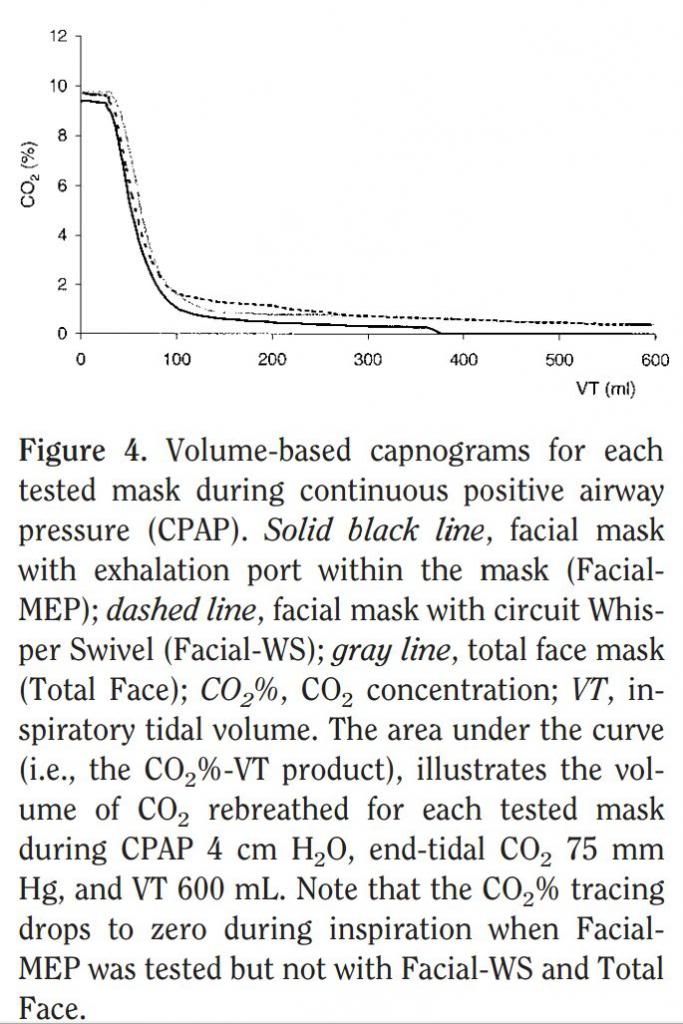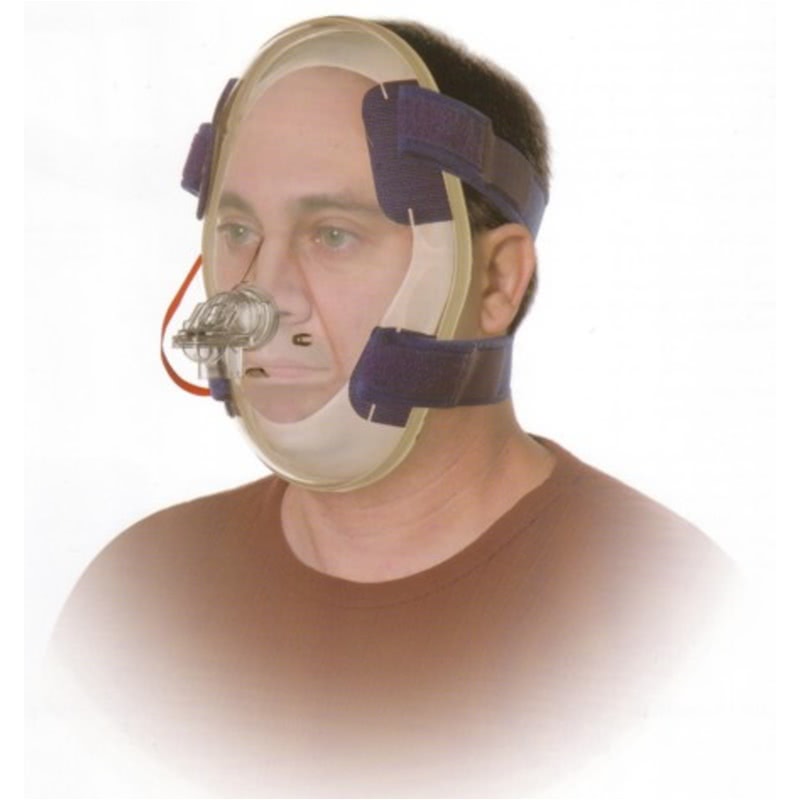Sludge,
I've never thought of these things before. I'm intrigued with what you are saying and (of course) the graphs you've posted, but I don't think I understand it. And since there are both graphs and numbers, well, that makes me want to know what they all mean
I'd like a better understanding of what you are saying, so that I can better understand what you're talking about.
If you can be patient with me, I've got some really naive beginner level questions.
Let's start with the acronyms: What do the following really mean?
ETCO2 = End Tidal CO2
FECO2 = fraction of expired carbon dioxide
FICO2 = fractional concentration of inspired CO2
pCO2 = carbon dioxide partial pressure
Thanks to Google, I know what they "stand for", but that's not the same as having some kind of a vague idea of what these numbers actually mean. I know that they're all related to CO2 levels, but beyond that, I'm not real sure that I have a decent working heuristic understanding of any of them. I've not done a thorough job of reading everything I can find on Google about them, but then I'm lazy tonight. (Nasty migraines do that.)
I have some vague sense that either EtCO2 or FECO2 is connected to measuring how much CO2 you're exhaling, but clearly there's got to be something I'm missing. What is the difference between FECO2 and ETCO2?? Or does EtCO2 measure the CO2 in the air that's actually in your airway (in the throat? lungs?) at any point and FECO2 measures how much you actually get rid of by exhaling?
FICO2 has something to do with how much CO2 you inhale back in---i.e. rebreathe?
And while I love graphs, I do want to understand what the heck they're trying to convey. You posted this graph:

Now I can see the
mathematical difference between the two graphs. The etCO2 Normal Diaphragmatic Breathing graph is almost a pure square wave graph, whereas the etCO2 Chest Breathing with Hyperventiation is a saw toothed wave. And I know the difference between how normal diaphragmatic breathing feels versus chest breathing and hyperventilating. What I don't understand is what either graph is trying to covey about what's actually going on in my body depending on my breathing pattern. In other words, why is the ETCO2 level at 5% for about 2.5-3 seconds at a time when the breathing is normal diaphragmatic breathing? I presume that's during the exhale???
And how does the EtCO2 graph for Chest Breathing with Hyperventilation reflect the fact that when you hyperventilate the problem is that you are blowing off too much CO2???
And then there are these statements that I want to understand more clearly:
Sludge wrote:miltf wrote:Several people have commented that a vent rate of 20-30 L/min should dilute that CO2 to a much lower level than what I am seeing and that therefore I must be wrong.
Actually I'm with the crowd that's saying your entire testing methodology is wrong.
Your graph indicates that your FECO2 - FICO2 difference is ~0.6% whereas it should be about 5.0% This tells me that the the area you're measuring is almost completely non-participatory. It's a stagnant pocket, so it can measure neither the peak nor the trough accurately (or the response time is just too slow).
Very naive question: Why should FECO2 - FICO2 be about 5.0%? Is FECO2 - FICO2 the difference between the peaks and valleys in those graphs for the etCO2 Normal Diaphragmatic Breathing and the etCO2 Chest Breathing with Hyperventiation?
And out of pure curiosity: Suppose that really significant rebreathing was going on for what ever reason: How would that change the FECO2 - FICO2 number? In other words, what happens when you are hyperventilating and you start breathing into the proverbial paper bag in an effort to control the breathing and stop the hyperventilating? Conventional wisdom says you're supposed to do that so that you can (intentionally) rebreathe some of the CO2. (Conventional wisdom being what it is, it won't surprise me if you tell me that conventional wisdom is wrong.)
Put differently, let's put this volume into perspective. Calculate the actual deadspace of your mask. Fill it up with salt, stick your face in it, work out the excess and measure what's in there.
I'm not willing to do this, but according to the Swfit FX owner's manual:
(Swift FX) Physical dead space is the empty volume of the mask to the end of the swivel. Using the large cushions it is 106 mL.
The AirFit P10's owner's manual says it's dead space is larger: It says:
(AirFit P10) Physical dead space is the empty volume of the mask to the end of the swivel. Using the large cushions it is 123 mL.
Can we use those as approximations or not?
You can look at what your tidal volume is from your downloads. Calculate your existing anatomical deadspace (about 1.0 ml. per pound of body weight).
According to SH, my 90% tidal volume runs between 350 and 400 ml and my median tidal volume runs between 300 and 320 mL. The average tidal volume is usually also between 300 and 320. Can we use 310mL in the calculuation?
My weight is currently up a bit for me: It's been running about 112 or so rather than the usual 105-110 recently. (too many carbs *sigh*). So my existing anatomical deadspace is about 112 mL?
And what is "existing anatomical deadspace" anyway? The deadspace in my upper airway and lungs with there is NO PAP mask and machine attached to my face??
Now before we can add mask dead space to anatomical dead space, we need to calculate how much mask dead space is participatory (and since FECO2 - FICO2 difference is only ~0.6% and some of that will be due to washout, the answer is going to be "practically nothing".
And how do we do this?


